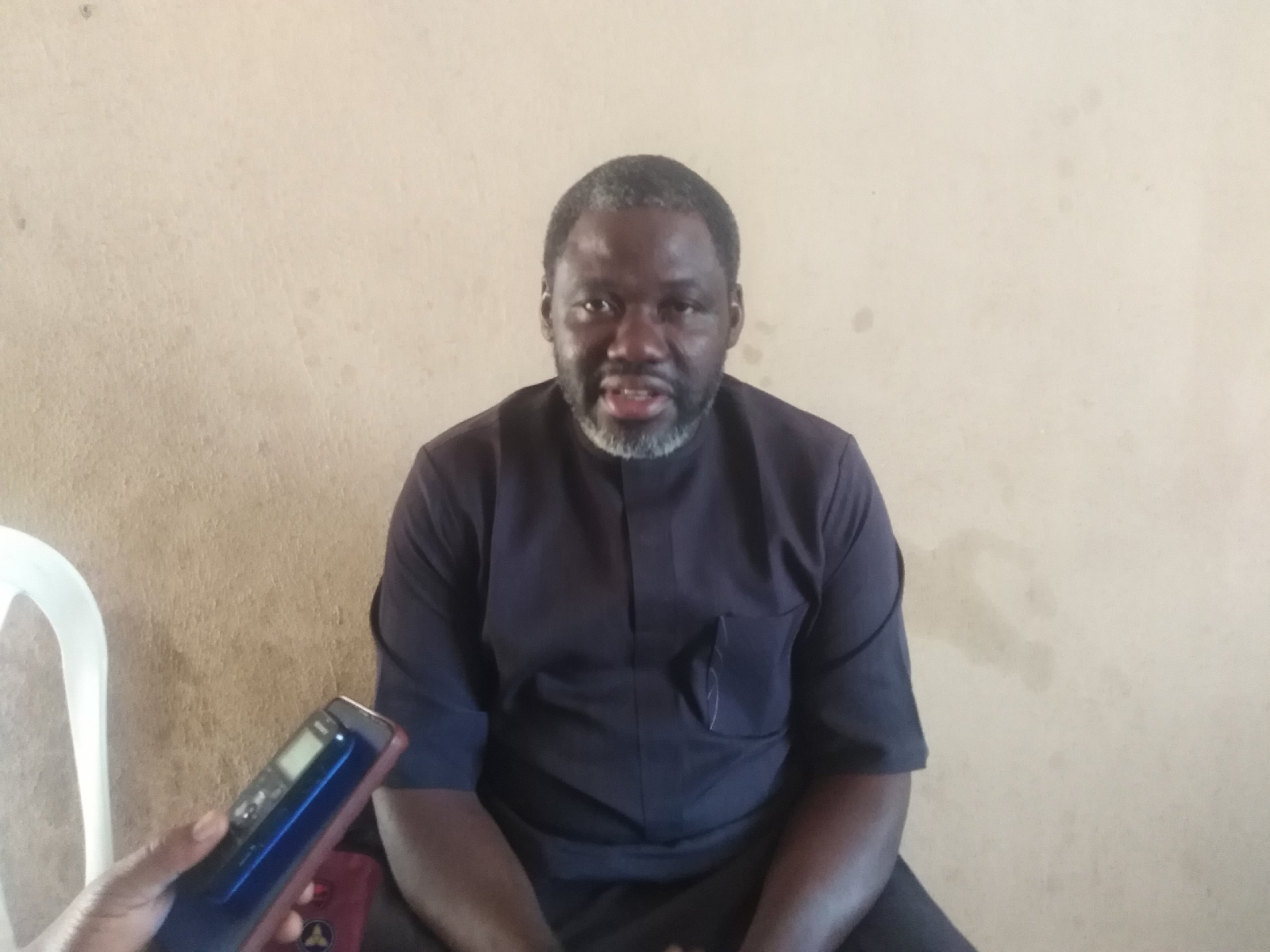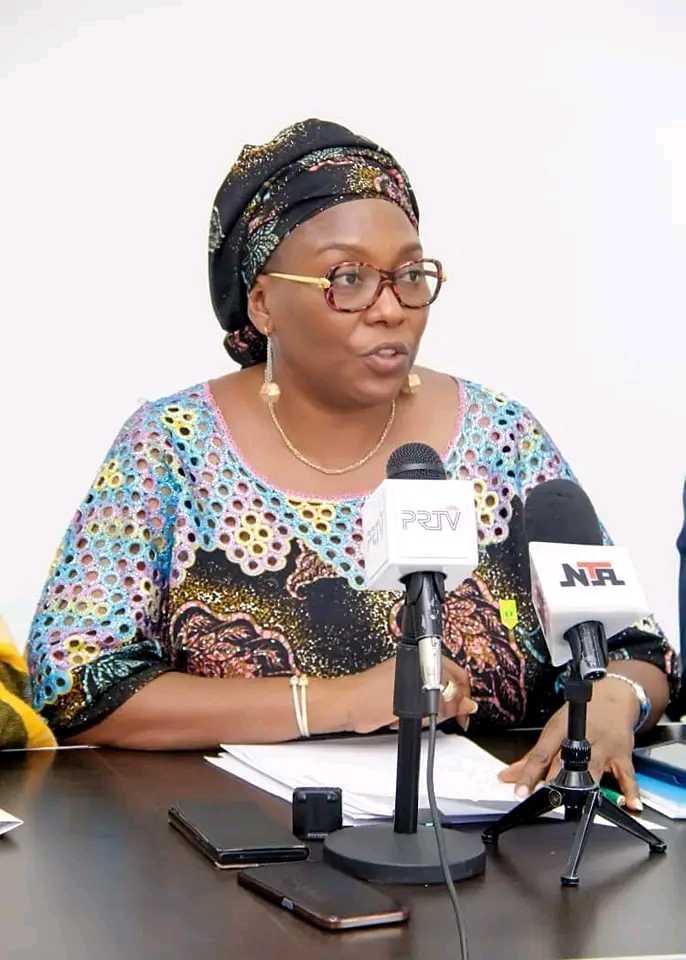Nigeria’s Debt Profile to Hit N138tr as Tinubu Seeks Fresh N1.76tr Loan Approval
Nigeria’s total debt is set to hit an all-time high of N136 trillion, following fresh request from President Bola Ahmed Tinubu to the National Assembly to approve N1.77 trillion (approximately $2.2bn) external borrowing plan in support of the 2024 budget.Graduate internship
The president conveyed his request in a letter written to Senate President Godswill Akpabio and Speaker of the House of Representatives, Tajudeen Abbas, and read by the presiding officers during plenary, on Tuesday.
According to the President, the request is part of Nigeria’s budgetary financing plan, which aims to address a portion of the N9.17 trillion fiscal deficit in the 2024 budget.
President Tinubu has also forwarded to the Senate the 2025–2027 Medium Term Expenditure Framework and Fiscal Strategy Paper (FSP), MTEF/ FSP 2025- 2027 approved by the Federal Executive Council, FEC, on November 10, 2024 to parliament.
The MTEF/FSP request which sought expeditious passage, was referred to the Senate Committees on Finance and that of National and Economic Planning to report back as soon as practicable.
According to the letter, the borrowing aligns with Sections 21(1) and 27(1) of the Debt Management Office (DMO) Act, 2003, and was previously approved by the Federal Executive Council.
The total new borrowing for 2024 stands at N7.83 trillion, with N6.06 trillion allocated for domestic borrowing and N1.77 trillion for external borrowing.
The president’s letter outlined three potential financing options to raise the required funds which include issuance of Eurobonds, Sovereign Sukuk and Bridge Finance/Syndicated Loans.
The president said the debut issuance of Sovereign Sukuk worth $500 million is being considered, with credit enhancement from the Islamic Corporation for the Insurance of Investment and Export Credit (ICIEC), a member of the Islamic Development Bank Group.
Speaking on the fresh borrowing plan, the Minister of Finance, Wale Edun, during a briefing after the FEC meeting, stated that it comprises Eurobond and Sukuk offerings, valued at $1.7 billion and $500 million, respectively.
He added that Nigeria’s ability to access the international capital market indicates acceptance and support for President Bola Ahmed Tinubu’s economic reforms.
How the president borrowed N50 trillion in 19 months
Nigeria’s total debt stood at N87.3 trillion when President Tinubu assumed office on May 29th, 2023.
By June 2024, the total public debt had hit N134 trillion, a whopping new borrowing totaling N46.7 trillion.
Nigeria recently achieved a milestone with its first-ever domestic dollar bond, which was oversubscribed by 180% in September. Initially aiming to raise $500 million, the government finally secured $900 million in commitments which translate to N1.5 trillion new borrowing which is yet to reflect on the Debt Management Office dashboard.
When computed, in addition to the new request, the present total borrowing in 19 months since assuming power comes to over N50 trillion.
Mounting debt service burden
Nigeria’s debt servicing expenses reached N6.04 trillion in the first half of 2024, marking a sharp increase of 68.8 per cent from the N3.58 trillion recorded during the same period in 2023, the latest data from the Central Bank of Nigeria showed.
This sharp rise in debt service obligations, likely driven by naira devaluation for foreign debt repayments, reflects the growing burden on the government as debt repayment consumes a significant portion of its financial resources.
Nigeria’s debt composition in the first half of 2024 was made up of 53% domestic debt and 47% external debt.
Similarly, Nigeria’s debt to GDP ratio crossed 50% for the first time in 2024 as debt repayment in 2024 exceeds both recurrent and capital expenditure.
A cursory look at the MTEF revealed that by 2025, capital expenditure will make up 34.44 per cent of the total budget, slightly higher than the 32.11 per cent allocated to debt servicing.
Debt servicing in 2025 will cost N15.38 trillion, while capital expenditure will receive N16.48 trillion.
By 2026, debt servicing is projected to increase by 0.9 per cent to N15.52 trillion, with capital expenditure dropping by 3.28 per cent to N15.94 trillion.
By 2027, the disparity will further widen as debt servicing climbs to 37.2 per cent of total spending, while capital expenditure accounts for 31.51 per cent.
Utilisation of funds
On the utilisation of the funds, the president said it would support key projects in priority sectors, including power, transport, agriculture, and defense.
He said the proceeds will also bolster external reserves through deposit into the Central Bank of Nigeria’s account, thereby stabilising the Naira.
Tinubu has also forwarded the Medium Term Expenditure Framework and Fiscal Strategy Paper (MTEF/FSP) 2025-2027 to the National Assembly and the National Social Investment Programme Establishment Amendment Bill, to make the social register the primary tool for the implementation of the federal government’s social welfare programmes.
He said the 2025- 2027 (MTEF&FSP) was approved during the Federal Executive Council (FEC) meeting of 10th November, 2024.
Tinubu urged the National Assembly to note that the 2025 budget of the federal government would be prepared based on the parameters and fiscal assumptions of the approved 2025-2027 (MTEF&FSP), hence, it was “imperative to seek National Assembly’s expeditious legislative action on this submission.”
In another letter, the president transmitted the National Social Investment Programme Agency (Establishment) (Amendment) Bill 2024 for consideration by the National Assembly.
He said the bill was transmitted pursuant to Section 58(2) of the Constitution of The Federal Republic of Nigeria 1999 (as amended).
“The purpose of the bill is to make the National Social Register the primary targeting tool for the implementation of social investment programmes of the government.
“This will ensure our social welfare programmes are data driven and implementation processes are transparent, targeted, dynamic and effective in delivering social protection benefits to vulnerable Nigerians”, he said.
He requested expeditious consideration of the request.
Experts react
In a recent statement, the World Bank expressed concern over the escalating debt service costs that are burdening developing countries worldwide. Indermit Gill, the World Bank’s Chief Economist, and Senior Vice President, emphasised the gravity of the situation, highlighting the potential for a widespread financial crisis if immediate and coordinated actions are not taken.
According to Gill, the combination of record-level debt and soaring interest rates has set many developing nations on a precarious path, one that could lead to economic distress and tough decisions regarding the allocation of resources.
Reacting to the fresh external loan request by President Tinubu, David Adonri, the Executive Vice Chairman at Highcap Securities Limited, said: “FGN is already in a debt trap, thus requiring new foreign debt to service outstanding debt.
‘’FGN also requires new foreign debt to finance import content of it’s budget. FGN is now in a quagmire as sinking further in debt worsens its precarious situation. Yet, without additional foreign debt, it cannot survive.
‘‘Although, I don’t know the structure of the new debt, its long-run effect is likely to be devastating for the economy”.
Also commenting, Prof Uche Uwaleke, President, Association of Capital Market Academics of Nigeria, ACMAN, said: “The request is part of the borrowing plan contained in the 2024 budget and so in order.
‘‘However, there is a need to specify the projects to be financed, whether or not they are self-liquidating and how the loan will be repaid. This is necessary considering the country’s already huge debt burden.
‘‘Another concern I have is that the emphasis seems to be on Eurobonds which are non-concessional and very costly. I think more attention should be on the Sovereign Sukuk which are project-tied and a lot cheaper”.
In his own comment, Clifford Egbomeade, Public Affairs Analyst/Communications expert, said: “President Bola Tinubu’s request for a fresh external loan of N1.77 trillion ($2.209 billion) reflects Nigeria’s ongoing struggle with fiscal deficits, with the proposed loan aimed at financing part of the N9.7 trillion shortfall in the 2024 budget.
“While external borrowing can provide immediate relief to budgetary constraints, Nigeria’s rising debt servicing costs—$3.58 billion in the first nine months of 2024, up 39.77% from 2023—underscore the increasing strain on public finances. ‘‘The devaluation of the naira has further exacerbated the real value of these obligations, making external loans costlier to repay in local currency.”
On the economic impact of the new loan, he said: “It will largely depend on how effectively it is utilized. If the funds are channeled into productive sectors like infrastructure, healthcare, or education, they could stimulate economic growth, create jobs, and improve public services. ‘‘However, Nigeria’s history of fiscal mismanagement raises concerns about transparency and accountability in loan utilization.
‘‘Without proper oversight, the loan could contribute to wasteful spending or fail to deliver the intended developmental outcomes, leaving the country burdened with even higher debt.
“ Moreover, Nigeria’s over-reliance on oil revenue and federal allocations highlights the urgent need for structural reforms to diversify revenue sources. As 32 states relied on FAAC allocations for at least 55% of their total revenue in 2023, and 14 states depended on these funds for over 70%, the country’s fiscal sustainability remains precarious.
‘‘To mitigate the risks associated with rising debt, the government must prioritize boosting internally generated revenue, restructuring existing loans, and adopting policies that ensure efficient debt utilization. Without these measures, further borrowing could deepen Nigeria’s economic challenges rather than alleviate them”.




Comments
Post a Comment